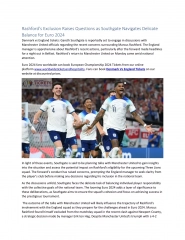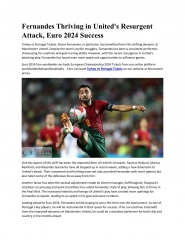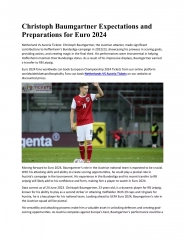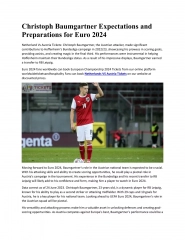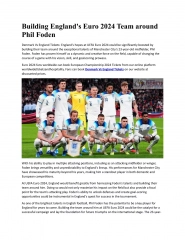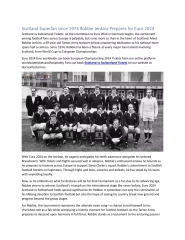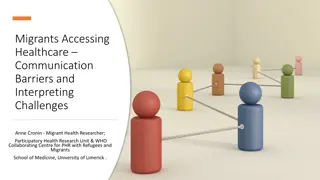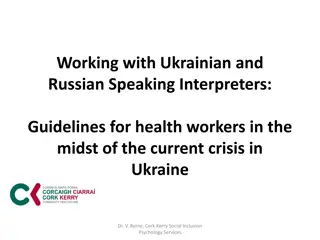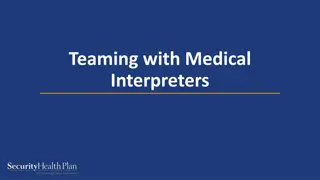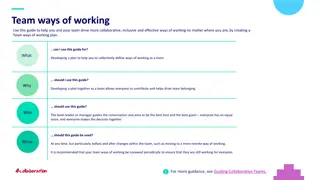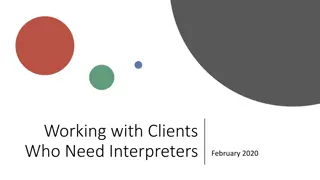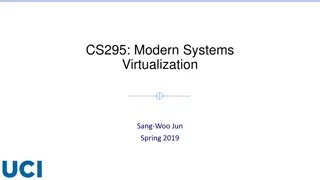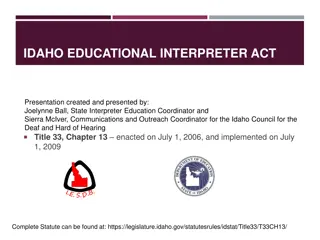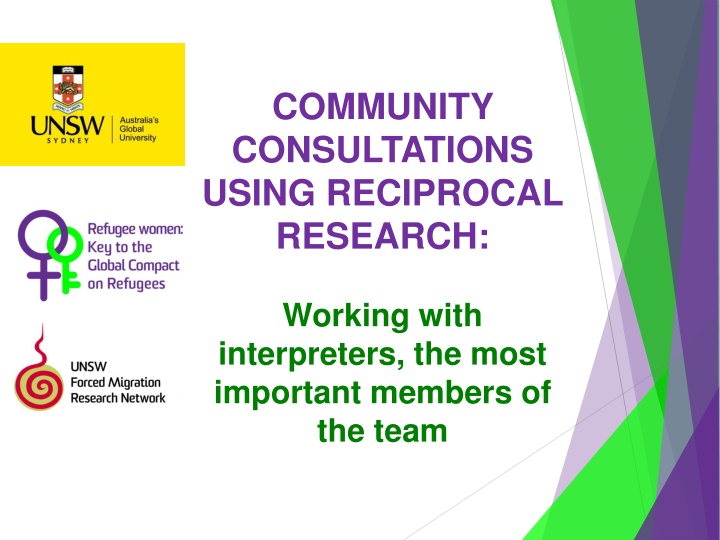
Effective Strategies for Working with Interpreters in Community Consultations
Understanding the crucial role of interpreters in community consultations is essential for success. This article emphasizes the importance of skilled interpreters, outlines their responsibilities, and provides tips for facilitating effective communication in multicultural settings.
Uploaded on | 1 Views
Download Presentation

Please find below an Image/Link to download the presentation.
The content on the website is provided AS IS for your information and personal use only. It may not be sold, licensed, or shared on other websites without obtaining consent from the author. If you encounter any issues during the download, it is possible that the publisher has removed the file from their server.
You are allowed to download the files provided on this website for personal or commercial use, subject to the condition that they are used lawfully. All files are the property of their respective owners.
The content on the website is provided AS IS for your information and personal use only. It may not be sold, licensed, or shared on other websites without obtaining consent from the author.
E N D
Presentation Transcript
COMMUNITY CONSULTATIONS USING RECIPROCAL RESEARCH: Working with interpreters, the most important members of the team
Good interpretation is critical to a successful consultation. If the interpreter does not interpret correctly then the consultation can fail. Trained interpreters are not always available. It is the responsibility of the facilitator to ensure that the interpretation is effective. Intellectual property of E Pittaway and L. Bartolomei; Reuse is permitted with author attribution
If Possible interpreters should: have experience working as an interpreter be literate in the language they are interpreting have the confidence of the participants in the training have experience in translating gender issues be comfortable discussing issues such as sexuality Intellectual property of E Pittaway and L. Bartolomei; Reuse is permitted with author attribution
The Interpreters Role They are the main communication channel for the facilitator and the participants. It is critical that they: must translate exactly what is said. must speak in the first person - they are translating not speaking on behalf of the facilitator or participants. must not censor what is said must not change the interpretation to suit their point of view must not be afraid that the facilitator will be offended by what is said and refuse to translate it. Intellectual property of E Pittaway and L. Bartolomei; Reuse is permitted with author attribution
The Interpreters Role Additionally you will need them to: Write the key points of discussion onto flip charts in their own language. Do some translation of written materials Have a brief meeting with the facilitators each morning to plan the days work and each evening to discuss any problems. Intellectual property of E Pittaway and L. Bartolomei; Reuse is permitted with author attribution
The Facilitators Role The facilitator must always have control of the conversation. The interpreter must not stand in front of or between the facilitator and the participants. The facilitator must speak to participants in the first person and prompt the interpreter always to translate in the first person. The facilitator must not ask the interpreter what the participant means they must ask the participants. The facilitator must not allow conversation between interpreters and participants it must all go through the facilitator. Intellectual property of E Pittaway and L. Bartolomei; Reuse is permitted with author attribution
A good facilitator: says the same things in several different ways to make sure that the interpreter understands what is being said. watches for body language to check meaning. does not use slang or jargon. speaks slowly and clearly. uses lots of body language and facial expression. If the interpreter falters, the facilitator should check that they have explained what they are saying clearly. Intellectual property of E Pittaway and L. Bartolomei; Reuse is permitted with author attribution

